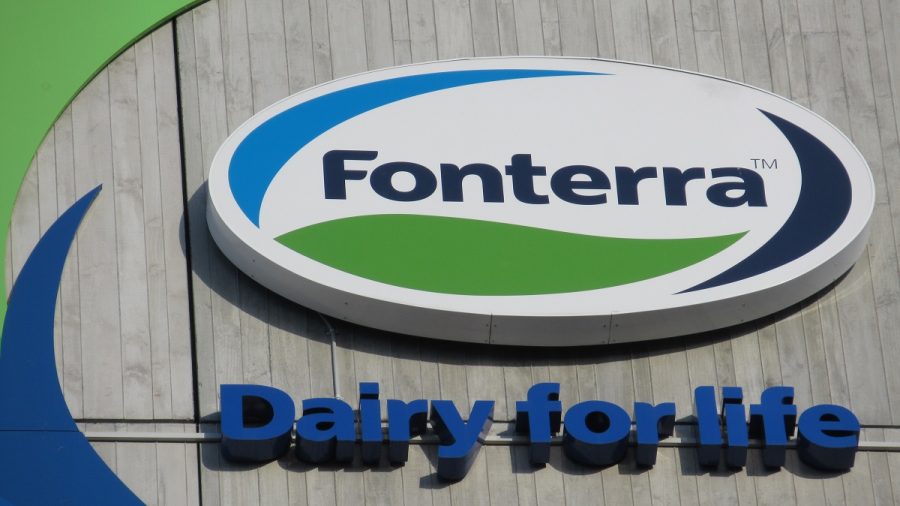Uncover the reasons behind Fonterra’s decision to divest its Australian dairy operations. What ramifications will this significant corporate restructuring have on the dairy sector? Continue reading to explore the details.

Today, Fonterra, a dairy industry giant hailing from New Zealand, has made a significant move by announcing its decision to divest its Australian operations. This strategic shift is a key part of Fonterra’s plan to optimize returns and bolster profitability, solidifying its position as a leading global dairy exporter. By divesting our Australian assets, we’re taking substantial steps to strengthen our core New Zealand business and enhance shareholder value. This strategic move, outlined in their recent corporate review, underscores Fonterra’s commitment to refining its international footprint while pursuing sustainable expansion. In this article, we will delve into the details of Fonterra’s strategic pivot, explore the implications for the Australian dairy sector, and evaluate what this development means for the company’s future trajectory.
Impact On The Australian Dairy Industry: What Experts Are Saying
The decision by Fonterra, a New Zealand-based company, to divest its Australian operations is a significant moment for the dairy industry, particularly for Australian dairy farmers. Stakeholders, including the Business Council of Cooperatives and Mutuals (BCCM), have expressed substantial concerns, warning that such restructuring could lead to reduced competition and increased market consolidation. What are the implications for the average Australian dairy farmer? How will this corporate maneuver reshape the industrial landscape, affecting local production capabilities?
According to the BCCM, “The consolidation could undermine the bargaining power of Australian dairy farmers, potentially driving down milk prices and squeezing profit margins.”
Key Issues:
- Reduced Competition: Fewer options for consumers.
- Market Consolidation: Greater control by dominant entities.
- Bargaining Power: Threats to farmers’ livelihoods and sustainability.
These pivotal concerns underscore the urgent need for robust regulatory oversight to ensure that the divestment does not adversely affect the wider dairy industry and its constituent stakeholders. Will policymakers step up to address these challenges, or will farmers ultimately bear the burden of this sweeping corporate overhaul?
The Notion of Domestic Sovereignty Over Food Supplies Cannot be Understated.
The notion of domestic sovereignty over food supplies cannot be understated, particularly in light of Fonterra’s divestment. Industry experts, such as Melina Morrison, contend that a greater concentration of ownership endangers both farmers and consumers. The pressing question remains: Can Australia’s dairy sector sustain its control and integrity without succumbing to the demands of shareholder returns? What are the repercussions when local farmers are obliged to meet the expectations of remote stakeholders? These considerations are profound, emphasizing the need for a balanced approach that champions economic viability alongside sustainable farming practices.
The Role of Cooperatives in the Dairy Industry Extends Beyond Mere Economic Transactions
Cooperatives in the dairy sector go beyond mere economic transactions, embodying shared ownership and mutual support, thereby mitigating the adverse effects of corporate consolidation. This cooperative structure becomes even more crucial with Fonterra’s proposed divestiture of its Australian assets.
Through harnessing collective strength, cooperatives bolster bargaining power, stabilize market prices, and ensure the local reinvestment of profits. This dynamic fortifies dairy farmers and guarantees that consumers receive ethically sourced, locally produced goods. According to the Business Council of Cooperatives and Mutuals (BCCM), cooperatives provide indispensable services to more than one in eight Australians, highlighting their significant national presence.
Furthermore, BCCM underscores that cooperatives facilitate equitable income distribution within the agricultural sector, supporting farms that might otherwise be vulnerable to corporate takeovers. In the wake of Fonterra’s exit, cooperatives present a resilient, locally-centered alternative, reinforcing the critical concept of domestic control over food supplies.
This model empowers farmers and promotes a sustainable, transparent agricultural sector, effectively aligning with community values and ethical considerations. Amidst the looming industry transformations, the cooperative paradigm ensures economic stability and social integrity preservation.
The Bottom Line
Ultimately, Fonterra’s decision to divest its Australian operations marks a significant upheaval within the dairy sector, challenging established norms while highlighting pressing issues surrounding agricultural sustainability and national sovereignty. Although the company’s strategic emphasis on global efficiency and financial metrics is evident, the sweeping implications for Australian dairy farmers and the industry must be addressed. The trend toward increased ownership consolidation places the independence and viability of local producers at risk, accentuating the necessity for robust cooperative frameworks and policies that ensure national food security. As the sector contends with these complex challenges, the imperative for a thoughtful, forward-looking strategy that balances economic objectives with ethical responsibilities is more crucial than ever before.
As we delve into this development, several key takeaways emerge:
- Market Consolidation: The potential for increased market consolidation raises concerns about reduced competition and its impact on consumer prices and product diversity.
- Bargaining Power: Smaller dairy farmers may face diminished bargaining power, potentially threatening their livelihoods and the stability of local markets.
- Regulatory Oversight: The need for robust regulatory frameworks becomes paramount to ensure fair practices and protect the interests of all stakeholders involved.
- Sustainability Concerns: The shift in ownership dynamics calls into question the long-term sustainability of agricultural practices and the maintenance of local food sources.
“The divestment by Fonterra highlights critical issues surrounding national food security and the future of cooperative models in the agricultural sector.”











